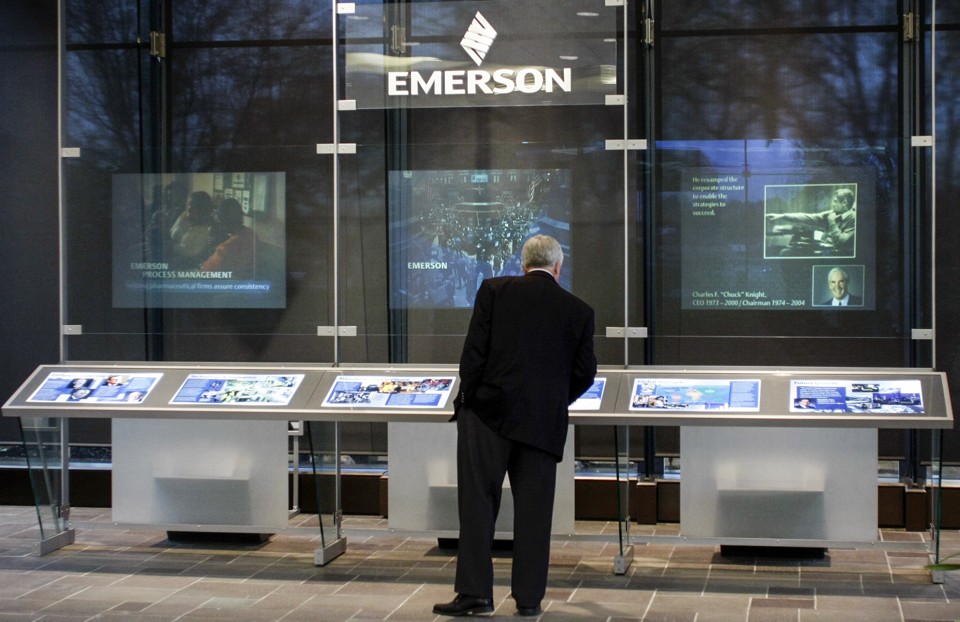theatlantic | Take a walk along West
Florissant Avenue, in Ferguson, Missouri. Head south of the burned-out
Quik Trip and the famous McDonalds, south of the intersection with
Chambers, south almost to the city limit, to the corner of Ferguson
Avenue and West Florissant. There, last August, Emerson Electric
announced third-quarter sales of $6.3 billion. Just over half a mile to
the northeast, four days later, Officer Darren Wilson killed Michael
Brown. The 12 shots fired by Officer Wilson were probably audible in the
company lunchroom.
Outwardly, at least, the City of Ferguson would appear to occupy an
enviable position. It is home to a Fortune 500 firm. It has successfully
revitalized a commercial corridor through its downtown. It hosts an
office park filled with corporate tenants. Its coffers should be
overflowing with tax dollars.
Instead, the cash-starved municipality relies on its cops and
its courts to extract millions in fines and fees from its poorest
residents, issuing thousands of citations each year. Those tickets plug a
financial hole created by the ways in which the city, the county, and
the state have chosen to apportion the costs of public services. A
century or more of public-policy choices protect the wallets of largely
white business and property owners and pass the bills along to
disproportionately black renters and local residents. It's easy to see
the drama of a fatal police shooting, but harder to understand the
complexities of municipal finances that created many thousands of
hostile encounters, one of which turned fatal.
The
familiar convention of the true-crime story turns out to be utterly
inadequate for describing the social, economic, and legal subjection of
black people in Ferguson, or anywhere in America. Understanding this
requires looking beyond the 90-second drama to the 90 years of
entrenched white supremacy and black disadvantage that preceded it.



0 comments:
Post a Comment